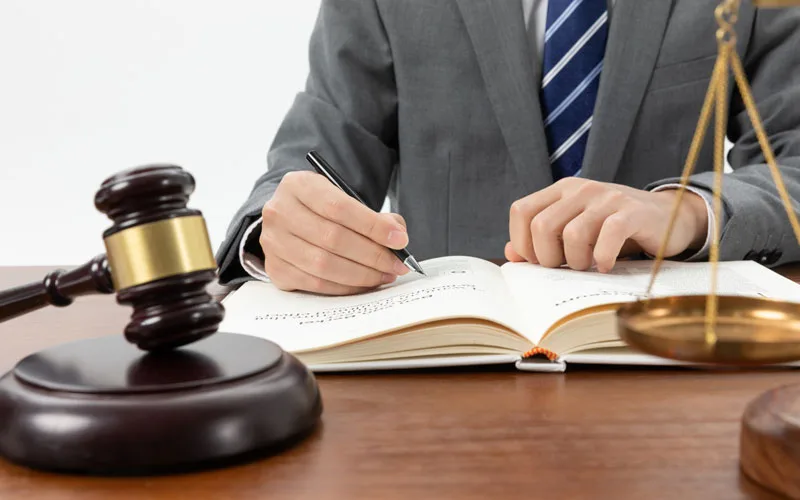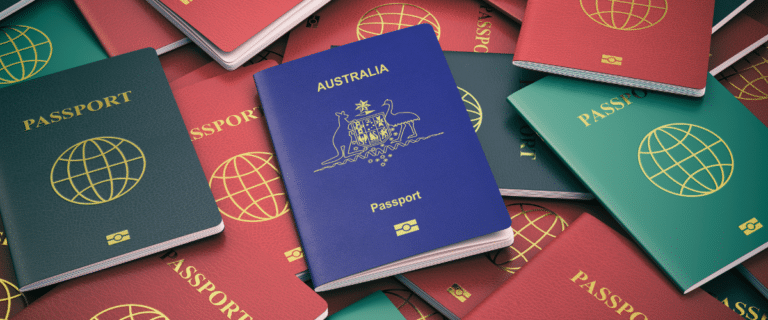On This Page...
ToggleVisa Cancellation in Australia (2025 Guide): Reasons, Process, Appeal Options & Practical Steps
By Nilesh Nandan — Australian Immigration Lawyer, MyVisa® Immigration Lawyers
This blog is intended for discussion purposes only and does not constitute advice. You should seek independent legal advice before relying on any information provided on this site.
Immigration policies, systems, and processes can change without notice. I’d like to know your own experience with the immigration challenges noted above — feel free to contact me.
Table of Contents
Every case turns on its facts. The law gives the Department wide powers but also requires procedural fairness. Your goal is to use the short time available to present a clear, accurate and well-evidenced story. The difference between a rushed, emotional reply and a structured legal submission can be the difference between cancellation and survival of your visa.
Visa cancellation at a glance (the big picture)
Visa cancellation can occur under several provisions of the Migration Act 1958. Most clients encounter one of five common pathways: s116 (general grounds), s501 (character), s109 (incorrect information), s128 (offshore cancellation), or s137J (student-related grounds). Each has different triggers, evidence considerations and review rights. In many instances, you will first receive a NOICC. That’s your opportunity to correct the record, explain the circumstances, and persuade the decision-maker to exercise discretion in your favour.
My approach is consistent regardless of ground: identify the precise legal trigger, map the timeline, isolate disputed facts, gather third-party evidence, and craft a submission that addresses the legislation and the policy while telling your human story. That blend of law and reality is how strong cases are built under pressure.
Legal grounds for visa cancellation
Below is a practical overview of the principal cancellation powers relevant to most clients. Use it to identify where your case sits before drafting anything.
s116 — General cancellation powers
Section 116 allows cancellation if, for example, the decision-maker reasonably suspects you did not comply with visa conditions, circumstances have changed such that the visa would not have been granted, the presence of the visa holder may be a risk to health/safety, or there has been non-genuine study or work. This provision is broad. The key word is discretion: even if a ground is technically made out, the decision-maker may still decide not to cancel after considering all relevant factors.
In s116 matters I focus on disproving the factual assumption (if it’s wrong) and, in the alternative, persuading on discretion: compliance history, community ties, employer or education provider statements, and evidence that any breach was minor, inadvertent or remedied.
s501 — Character-related cancellation
Section 501 deals with visas cancelled on character grounds. These are often the most complex and high-stakes matters. A person may fail the character test due to substantial criminal record, association, or risk factors identified by the Department. For mandatory cancellation (e.g., certain sentencing thresholds for non-citizens in prison), the Act provides a strict framework and tight timeframes to seek revocation.
Strategy in s501 cases involves frank disclosure, sentencing materials, rehabilitation evidence, psychological reports, probation or parole confirmations, community references and hardship evidence. The decision hinges on protection of the Australian community, expectations of the community, the risk of reoffending, ties to Australia and the best interests of any minor children affected. Submissions must be thorough and respectful — thin material is rarely persuasive in s501.
s109 — Incorrect information (PIC 4020 context)
Under s109, a visa may be cancelled if you provided incorrect information or bogus documents. Sometimes the issue is innocent mistake; sometimes it is a genuine dispute about what a form question really meant. The law distinguishes between deliberate deception and inadvertent error, but both can be serious. If you receive a NOICC under s109, respond carefully. Correct the record, explain the mistake if there was one, and provide independent corroboration wherever possible (employer letters, education records, civil registers).
Where the Department suspects a pattern of inconsistent statements, I align the file: a dated chronology, copies of original applications, and a short witness statement clarifying ambiguities. Your aim is to restore credibility.
s128 — Cancellation outside Australia
Section 128 allows cancellation while the person is outside Australia in certain circumstances, often without prior notification. Clients typically discover the cancellation when boarding is refused or when a new visa is later refused due to history. The remedy depends on the reason for cancellation and your current objectives (returning to Australia, clearing the record, or applying afresh). In practice, we obtain the Departmental records, reconstruct the decision pathway, and then decide whether to challenge, explain or move strategically to a new application.
s137J — Student default and related grounds
Under s137J, student visas can be cancelled where course enrollment is not maintained or certain student obligations are not met. Sometimes students genuinely misunderstand their enrolment status, or a provider’s reporting triggers cancellation despite attempts to remedy the issue. In these cases, I gather evidence of attendance, course changes, deferrals, compassionate or compelling circumstances, provider communications and payment records. If the NOICC window is open, act immediately and explain the educational pathway clearly.
What happens first: NOICC, natural justice & timeframes
In most onshore cases, the Department serves a Notice of Intention to Consider Cancellation (NOICC). The NOICC states the legislative ground and the facts relied on, and invites your response by a deadline. This is your natural justice window. Missing the deadline almost always harms your position; assumptions in the NOICC may then go unchallenged.
Typical timeline:
- NOICC received — read carefully and diarise the due date.
- Immediate triage — identify the legislative ground, disputed facts and missing documents.
- Evidence sprint — collect third-party records to fill gaps and correct errors.
- Submission — a structured response uploaded before the deadline.
- Outcome — cancellation, “no cancellation”, or further information request.
Keep your tone professional. Avoid speculation or blame. If a mistake occurred, acknowledge it if appropriate and show remediation. Decision-makers respond to clarity, not bluster.
How to respond effectively (lawyer’s method)
When time is tight, I use a disciplined template to produce a persuasive response quickly.
- Header & identifiers: Full name, DOB, client ID, visa subclass, NOICC date, due date, legislative ground cited.
- Issue list: Bullet point the specific allegations or concerns.
- Chronology: Dated events with references to evidence (“See Annexure A1”).
- Factual response: Address each allegation calmly, correcting errors and attaching independent proof.
- Legal framework: Briefly outline the test under the section (e.g., discretion in s116; character factors in s501).
- Discretion submissions: Harm if cancelled, community ties, children’s best interests, rehabilitation, compliance steps.
- Annexures: A numbered bundle (A1, A2…); label files clearly for fast reading.
- Conclusion: Polite request not to cancel (or to revoke/decline to cancel), thanking the decision-maker for considering the material.
Attach only what is relevant. Ten focused pages beat a hundred random screenshots. If evidence is pending (e.g., a police check en route), note it and provide an ETA. If you need more time, request it early with reasons.
Document checklist for cancellation responses
| Category | Examples | Why it matters |
|---|---|---|
| Identity & visa | Passport biodata, visa grant, VEVO printout | Confirms status and scope of conditions |
| Factual proof | Employer letters, payslips, rosters; enrolment records; travel evidence | Corroborates your version of events |
| Character & conduct | References, rehabilitation programs, counselling reports | Essential in s501; useful in discretion under s116 |
| Hardship & ties | Family composition, care obligations, medical reports | Shows impact and community connection |
| Communication record | Emails with provider/Department, receipts, timelines | Demonstrates good faith and diligence |
Bundle your annexures and paginate. A clear index saves the reader time and helps your credibility.
After cancellation: bridging visas, work rights & status
When a visa is cancelled, your status changes immediately. Depending on the pathway, you may become unlawful unless protected by a bridging visa or by an in-time review application. If you are eligible for review and you lodge within the deadline, a bridging visa may become available pending the outcome (often with work limitations that can be varied in certain circumstances). If no review is available, consider urgent legal advice about other options to regularise status or make timely departure plans to avoid re-entry bars or longer-term complications.
Do not ignore your status. Check your VEVO, confirm bridging visa grant and conditions, and keep copies of everything. If you are unsure, get advice immediately.
Appeals: AAT review, Federal Circuit and Ministerial options
If your cancellation decision is reviewable, you may have a short window to apply to the Administrative Appeals Tribunal (AAT). The AAT will generally conduct a merits review — looking at the facts afresh — and can affirm, vary or set aside the decision. Strict time limits apply. Missing a deadline usually ends the review pathway.
In s501 cases, different review regimes can apply depending on whether the cancellation was mandatory or discretionary, and whether the decision was made by a delegate or the Minister personally. If the Minister made the decision personally, merits review may be excluded; only limited judicial review might remain. Judicial review focuses on legal error, not the merits. Finally, in rare and appropriate circumstances, Ministerial intervention may be considered after merits review avenues are exhausted, but this is highly discretionary.
For appeals, I prepare a fresh evidence plan: updated references, risk assessments, family impact statements, medical material, and expert reports if needed. The hearing is your chance to tell the story properly — prepare for it like it matters, because it does.
Comparison table: cancellation types, triggers and review
| Ground | Typical trigger | Discretion? | Review pathway (typical) | Key evidence focus |
|---|---|---|---|---|
| s116 (general) | Non-compliance, changed circumstances, risk concerns | Yes | AAT merits review (time-limited) | Compliance records, ties, employer/provider evidence |
| s501 (character) | Substantial criminal record, risk, associations | Yes (except certain mandatory settings) | Varies: AAT or limited/judicial if Minister personally decides | Rehabilitation, risk reduction, best interests of children |
| s109 (incorrect info) | Inaccurate statements/false documents | Yes | AAT merits review (time-limited) | Documentary corrections, independent corroboration |
| s128 (offshore) | Cancellation while outside Australia | Yes | Depends on context; often new application strategy | Decision record, new facts, pathway planning |
| s137J (student) | Enrollment breach, non-attendance, reporting | Yes | AAT merits review (time-limited) | Education records, compassionate/compelling circumstances |
Common mistakes (and how to avoid them)
- Missing the NOICC deadline: Even a strong case can fail if lodged late. Diarise immediately.
- Emotional responses without evidence: Assertions are not proof. Attach independent documents.
- Inconsistency between forms and statements: Align dates, employers, study and travel. Fix errors openly.
- Over- or under-disclosure: Provide what’s relevant and probative. Don’t flood; don’t starve.
- Silence about past issues: Address previous non-compliance, explain remediation and show changed behaviour.
- DIY in a high-risk s501: Character matters demand forensic preparation. Get help early.
Real anonymised examples from my practice
Example 1 — s116 and alleged work breach on a visitor visa
A visitor was accused of working while on a no-work condition. The NOICC relied on social media posts and third-hand information. We produced airline tickets, event itineraries, bank records and a statutory declaration explaining the context (a family event, not employment). We also obtained letters from the supposed “employer” confirming no employment relationship existed. The delegate decided not to cancel under discretion.
Example 2 — s501 and rehabilitation after a short sentence
A temporary resident with a short custodial sentence faced s501 cancellation. We filed a detailed risk assessment from a psychologist, employer support, parole compliance records, and evidence of community service. The case focused on the protection of the community and expectations of the community. The decision was to revoke the cancellation following submissions and a hearing; the client rebuilt their life and has had no further incidents.
Example 3 — s109 and an honest mistake about a prior visa
Our client ticked the wrong box regarding a previous visa refusal due to misunderstanding the question. The Department treated it as incorrect information. We obtained the old file, showed the nature of the confusion, provided new statutory declarations and independent confirmation. The delegate accepted the explanation and declined to cancel.
Example 4 — s137J student enrolment confusion
A student’s provider reported non-enrolment after a deferral request fell through the cracks. We produced emails showing timely attempts to comply, payment receipts, compassionate circumstances, and a new COE. The Department exercised discretion and did not cancel.
Frequently asked questions
- What should I do the day I get a NOICC?
- Diarise the due date, read the alleged facts carefully, and start an evidence list immediately. If needed, seek urgent legal advice the same day.
- Will I get a bridging visa if my visa is cancelled?
- It depends on the pathway and whether you have a review right that you exercise in time. If a bridging visa is available, check the conditions and keep copies.
- How long does the Department take to decide after my response?
- There is no fixed timeframe. Complex cases may take longer; some decisions issue quickly. Keep your contact details current and monitor messages closely.
- Can I work or study while my cancellation is being considered?
- Only if your current visa/bridging visa permits it. Read your conditions. Breaches harm your case and can trigger further action.
- What happens if my visa is cancelled and I don’t appeal?
- Your status may become unlawful. You should seek immediate advice about regularising status or departing to avoid compounding issues.
- Is an apology helpful if I made a mistake?
- Where appropriate, yes — but pair it with objective remediation steps and independent evidence. Decision-makers value candour and concrete change.
- Do I need a lawyer?
- Not legally required, but high-risk matters (especially s501 or complex s116/s109) benefit from specialist preparation, structured evidence and advocacy.
What to do next
If you’ve received a NOICC or a cancellation decision, time is critical. A focused, evidence-backed submission can change the outcome — but only if it’s on time and on point. My team and I act quickly, prioritising cases by deadline and risk level.
Book a consultation with me to discuss your visa cancellation case. I’ll review your NOICC or decision letter, map your best options, and give you a realistic plan for the next 48–72 hours.
Helpful pages on our site: Visa Refusals · Visa Cancellations · Court Appeals
By Nilesh Nandan — Australian Immigration Lawyer, MyVisa®️ Immigration Lawyers
This blog is intended for discussion purposes only and does not constitute advice. You should seek independent legal advice before relying on any information provided on this site. Immigration policies, systems, and processes can change without notice. I’d like to know your own experience with the immigration challenges noted above — feel free to contact me.
MyVisa: Nilesh Nandan, Attorney at Law
BBus(Accy) LLB(QUT) GDLP MBA(IntBus)
Head of Practice





48 Responses
Hi, I am on 482 TSS at the moment. Since the company has stopped growing they have made multiple people redundant. I received an invitation in relation to performance of my duties next week. The behaviors of the company has led me to believe they are trying to cut down on the team and looking to downsize.
I have a partner who is on a Student visa. I have an option to go on a dependent on her visa. I am just concerned since I will be receiving Bridging A upon lodging dependent visa and if they cancel 482, Bridging A will be cancelled too. So what are my options here? Should I wait until they cancel or how does it work?
Hi,
I have a question and would be grateful if you could help me with it.
I have been granted a working holiday visa (462), but later in the year I hope to be able to apply for a more convenient one given my circumstances (408 research activities or even 186 employer nomination scheme). Do I need to wait for the 462 to expire, or can I apply for the new one anytime? Is the approval of the new visa going to be affected by the current 462? Do I have to make the new application from outside Australia? Is there any other thing I need to pay attention to?
Thank you so much in advance.
Best,
Maria
My wife and son had a permanent
Residency visa valid until Oct 2023
With vevo
They were denied re entry to Austrlia
On 17th January 2022 whilst
Holiday in Thailand the reason we
We’re given is that had become
Austrlian citizens in Sept 2022
And now can’t return until they get
Austrlian Passports in Thailand
They traveled on there Thai Passports
We were never informed that
There permanent residency visas were
Revoked Mark
Hi,I was released from prison on 12/12/22 after serving 12 months.I received a notice on 20 October 2022 informing me my visa had been cancelled.It was cancelled by the Immigration Minister in June last year.i have sent the Revocation for cancellation form in October/November last year.Upon my release from prison ,I was taken into immigration detention by Serco.Currently,I am in Hotel detention at Meriton in Brisbane City.Whilst here,I received a letter from HA inviting me to comment on the transcript of court proceedings that was attached to this letter.I have sent my response through to Revocations section.Whilst I was in prison,I told my sister to send all my supporting documents to Senator Bill Murray in Southport,Qld.His office sent all my materials to Revocations.Initially,prior to this the NCCC had my representations.So thats where I am at now and awaiting a response to my application.I have lived here for 28 years,all my family,extended family,my child born last year whom I have yet to meet,all my connections are here in Australia.My association with my birth country no longer exists and I have had no contact with fiji for 32 years.I have a lawyer but up till now,I myself have prepared and presented a case to Home Affairs.Which I feel is appropriate and looks genuine coming from me.If the decision to revoke my visa is cancelled I will then require representation.Can you advise on what else I can do? Out of 244 cancellations only 16 were revoked last year.Pretty scary statistics…
Hi Mr Nilesh
Can you please help me with advise if I need to set up an hook up with you please let me know?
Summary-
My permanant visa application refuesd under Sec 501 in 2017 due to an regrettable I was involved in 2012 which gave me 12 Months imprisonment.
I am so fortunate that AAT set aside department decision and department granted my PR or Subclass 190 visa.Apart from my offence in 2012, I never involved anything.I am working hard to make my family life prosperious, happy .
My wife and my son granted citizenship now. I am looking to apply my citizenship soon.
My father passed away during Covid and my mum is very unwell.I want to go Bangladesh to see my mum, to visit my father graveyard, to see my siblings.Will by criminal conviction will create problem if I travel Bangladesh for 4 weeks, eventhough this matter has already been dealt my department .I am very worried should I go or not.
Ple note I came Australia as an Student.
If you can tell me what should I do?
Hi,
My brother-in-law applied for a working holiday visa which is subclass 417. Is there any chance to cancel his visa and go for a tourist first? He wants to look around first before re-apply for 417.
Will he have any issues if there’s a record that he cancelled his visa? Can he still apply for 417 after his tourist visa?
Thank you😊
Hi Nilesh, I am on 491 visa granted on feb 2022 and this financial year makes 1year complete but still have more 2years to complete for applying 191 visa. With the current grants of 190/189 for 65 points for registered nurse, I regret applying 491. I have 85points and it seems unfair. Can I cancel my 491 visa and stay on covid and reapply 189 ? I have seen within three months my friend received nomination and visa grant for 189 with 65 points.
Your response will be highly appreciated.